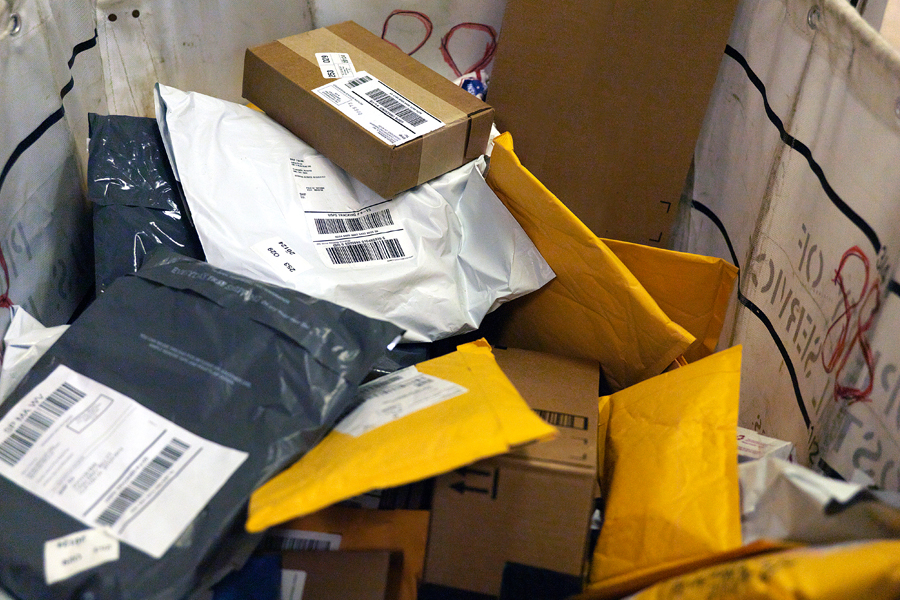
USPS wants employees to know which items should — and shouldn’t — be sent to the Mail Recovery Center in Atlanta.
When a mailpiece is undeliverable, it ends up at the Mail Recovery Center (MRC), where Postal Service employees do what they can to figure out where it is supposed to be delivered.
“We get mailpieces that are deemed undeliverable. They are often damaged, can’t be delivered through the normal process or have label problems. Sometimes the contents are no longer with the box,” said Asset Performance and Accountability Manager Leslie Lissimore, who oversees the MRC. “We represent the last opportunity to complete the Postal Service’s mission to deliver.”
Last year, more than 68 million mailpieces came to the center, which is located in Atlanta.
“The Mail Recovery Center employees are the only ones authorized to open mail. We look to make sure we haven’t been sent mail that can still be in the mail stream. We look to see if there is something that we can use to contact the recipient,” Lissimore said. “We have criteria for what we hold and what we don’t hold.”
But, Lissimore said, the MRC is receiving more and more items that it shouldn’t be getting.
“We are seeing an increase in hazardous material coming to us. This puts good mail in danger and it costs more money to have it handled at the MRC,” she said.
Lissimore wants to remind Postal Service facilities not to send the following items to the MRC:
- Trash
- Food
- Unopened retail Postal Service products
- Hazardous material, such as batteries and light bulbs
- Detergents and cleaning products
The MRC Blue page has lists of mail matter that shouldn’t be sent to the center, as well as loose-in-the-mail items and instructions on how they should be handled.
The Postal Operations Manual outlines additional policies for how to handle undeliverable mail. Additionally, facilities can go to the Sustainability Blue page for information on how to handle hazardous materials.
“We are getting things we shouldn’t have to touch and that really impacts our operation,” Lissimore said.
Source: USPS
